COVID-19: Top 7 Things to Do in Self-Isolation
Tips on self-isolating and social distancing during the outbreak of the COVID-19 coronavirus pandemic
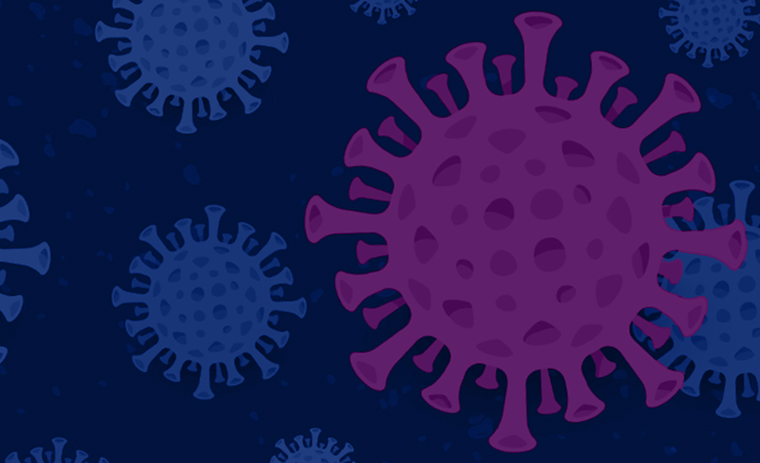
I don't pretend to deny the situation of the world. Plenty of times I have said to myself under baited breath:
The world is in shambles
The pandemic, falsely labelled as "the coronavirus" but better known as COVID-19, has reached all parts of the world. So even if you denied it early on in Janurary, you now have to face the facts that nearly every country in the world has seen at least one case of COVID 19.
I won't lie: I have a sort of personal investment in COVID19. Not only did I extensively travel through Wuhan, the origin city of the outbreak, but I still have some close friends in the region.
Nonwithstanding the generousity I experienced during my trip, it goes without saying that a coronavirus outbreak can easily spread in a city of over 11 million.
Thus, as the world grinds to a halt, business close and most of us self-isolate ourselves, it seems natural to flock to social media, twitter feeds, and to eagerly await the next government response, fantasizing our release back into society, preemptively twiddling our thumbs.
Health officials said two weeks, but recent evidence really says "more like 2 months". So like it or not, we will most likely find ourselves locked away from society for a long period of time. In this video, published as a remote TED talk, Bill Gates forsees a quarantine period of two months:
However, just because everyone else is wallowing in the sadness that is anti-socialness, doesn't mean you have to.
In no way can we make light of the thousands of deaths caused by COVID-19, but perhaps this pandemic situation does afford us some time to think, reflect, and re-assess our personal objectives and goals.
I should re-emphasize, however: that people don't know what to do probably outlines an even greater, more far-reaching problem in our modern society that has become inundated with countless streams of social media and "things to do". Indeed, how ironic that we feel so limited by our actions when most people spend most of their time at home anyway.
With the irony aside, many people will still crave some form of exercise, human interaction, and "thing to do". After all, human nature has evolved to favour the social.
So -- with the question now better phrased as "how can I best make use of my time in self-quarantine amidst the COVID-19 coronavirus pandemic?", let's go over what I feel might constitute useful time management.
What do you do for two whole months without going outside? Without any further ado, I present to you my list of the top 10 things to do in self-isolation/quarantine during the COVID-19 pandemic.
7 Ways to Pass the time in Self-Quarntine during COVID-19
1. Learn to Code
Ever had an app idea nagging at you but never had the chance to do it? Or maybe you don't know how to code. Now is a golden opportunity to learn how to code.
Learning to code requires no face-to-face interaction.
It helps build your problem-solving skills.
Perspective employers have listed coding as one of the top ten most desirable skills for potential hires.
Current studies estimate at least 7% of all jobs require, or will require some form of programming. If you haven't already coded in some capacity, chances are you will have to soon. So why not start early?
Convinced yet?
If you thought that learning to code requires expertise, take a tour of the internet and explore some of the many free options:
- CodeAcademy
- Wes Bos' JavaScript Essentials & GraphQL
- Program with Erik on YouTube (free)
- LinkedIn Learning (free) (formerly Lynda.com)
- Khan Academy
- Udemy Computer Science Courses
- Pluralsight programming courses (mostly Microsoft-focused: .NET, ASP, CSharp)
- eDX (free)
- Harvard: Introduction to Computer Science (free)
- Standford Computer Science 101 (free)
Bonus! 😲😳 Take this Stanford course on Computer Science: The Missing Lectures. Professor Anish goes over VIM and command-line tricks you can always use in your day job even if you know how to code.
For those who identify as "female" on the gender spectrum in Canada:
You don't need existing experience coding to get started; almost everything you need to know to write code is already documented on the internet.
Of course, learning to code doesn't happen overnight -- let alone in the course of two weeks. That's why courses like the one I teach, Lighthouse, help you to go the extra way: to motivate you to complete exercises, to learn from the pros, and to build on your existing skills.
You can also go the paid route and buy courses on Udemy or TutsPlus. (I haven't done any TutsPlus courses for a while, but I completed a few courses from FrontendMasters and really enjoyed them.)
If you don't want to sign up for a programming course out of fear of social interaction, you can always learn on discussion forums and discord servers.
Update: March 24, 2020: Shawn Windermuth now offers his courses for free via the "preview" button:
- Learn to bootcrap on your CSS with Bootstrap 4 💩
- Learn to VueJS in Microsoft land via ASP/SignalR
- Learn to ASP.net, get "vendor"-locked-in with Microsoft while you stay locked in at home -- and enjoy some "vanilla" SignalR
- Learn to get more vendor-locked-in with Microsoft by integrating your existing SPA with Microsoft's SignalR
- Learn to cross-integrate your Angular (Google) JavaScript SPA with SignalR (Microsoft)
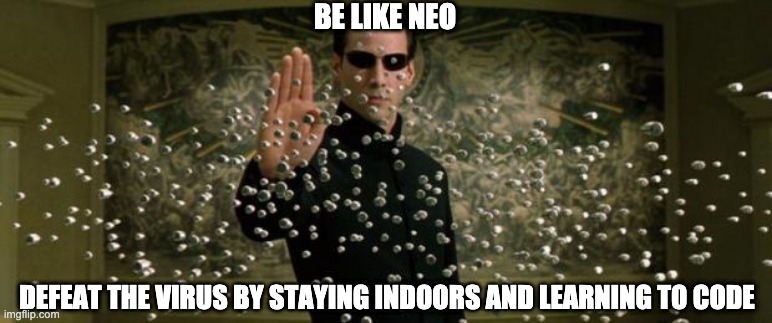
2. Write
Ever journaled before? Maybe you have a blog you have neglected. Maybe "writing a book" also figures prominently on your "bucket list".
My dad used to famously quote Nietzche and philospher Jean Paul-Sartre, who famously wrote:
A novel is a window into the psyche and ego of the writer
(In French):
Écrire, c'est faire appel au lecteur pour qu'il fasse passer à l'existence objective le dévoilement que j'ai entrepris par le moyen du langage.
Jean-Paul Sartre, What is Literature
Even if you don't write for a professional setting or to make money, you can benefit:
- Self-documents your life and thoughts
- Showcases your progression in goals
In the same way that journaling has shown to reduce symptoms and risk of depression, writing can do the same.
3. Clean
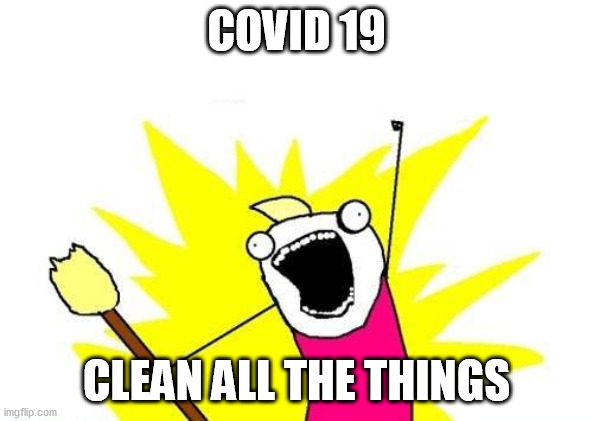
We have all seen the tweets from Dr. Tedros, showcasing the "#CleanHandsChallenge".
There are several measures you can take to protect yourself from #COVID19. One of the most important ones is regular & safe hand hygiene. Here are the steps recommended by @WHO 👇
— Tedros Adhanom Ghebreyesus (@DrTedros) March 13, 2020
Show the 🌍 where and how you wash your hands. Join the WHO #SafeHands challenge! pic.twitter.com/5ElZyiyZun
Indeed, perhaps an unlikely result of COVID 19 has caused us to revisit some of the dirtiest surfaces in our households and workplaces. Stop and consider when you last cleaned your:
- Phone
- Gaming console controller(s)
- Heat and ventilation covers and lids
- Computer keyboards and mice
- Headphones and audio equipment
Take the time to clean each of these surfaces. Don't hastily do so, and really do a good job. After all, studies show that at least 60% of people don't clean their cell phones enough.
4. Cook
Many of us don't have the time to cook during our daily lives. But now that #COVID19 has come around, the opportunity has arrived 😊.
Learning to cook affords us one of the most rewarding, engaging activities in life.
Not only will you live healthier, but you will cherish and enjoy your food more.
People have cooked and prepared food in creative ways for thousands of years. In a very intrinsic way, cooking makes up a core part of our evolution as humans.
Turning to the internet can often result in complex combinations of measurements, scales, and directions. So how can you learn to cook if you know very little?
If you have limited food in self-quarantine during COVID-19, try getting creative with canned foods. This video by Joshua Weissman outlines some creative ideas:
(Full disclosure: I went ahead and verified the foccacia idea and very much enjoyed the oil-slathered creation):
If you still have a hunger for creative recipes without strict directions, check out struggle meals by Frankie.
If you want more recipe inspiration, check out my Instagram for more ideas for food during self-quarantine during COVID-19.
5. Play Video Games
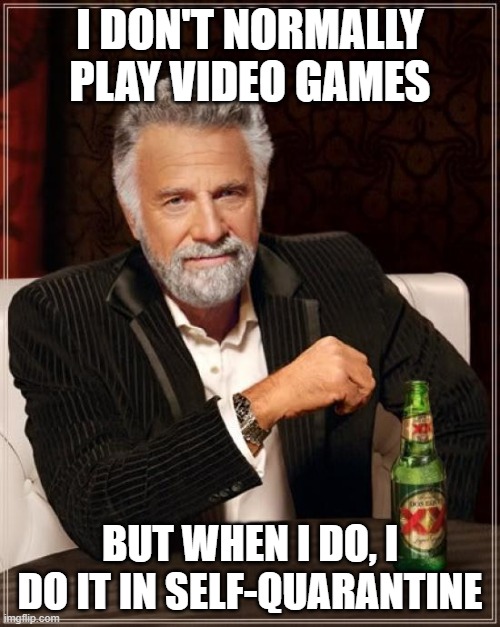
You've probably heard about video games in the past few years like Fortnite and Minecraft, extremely popular amongst young students and pre-teens, but that doesn't mean that you can't enjoy video games as an adult -- especially in a time of mandatory self-isolation.
Video games provide not only an escape from reality, but can also afford us a chance to learn, to interact with others, and to become more affluent with technology.
- Connect with people around the world, and ease your anti-social anxiety via VRChat (doensn't require a VR headset, free)
- Learn to pilot planes and aircrafts in Microsoft Flight Simulator
- Invest a thousand or more dollars in Valve's new VR headset, move around in your house with room-scale in VR, while playing Half-Life: Alyx
Other, more conventional games include:
- The Witcher 3 (mandatory play for those who have watched the recent, critically-acclaimed Netflix Witcher series)
- Undertale
- Shovel Knight
- Red Dead Redemption 2
You might be wondering you you can afford to purchase $100-dollar games, and rightly so. Thankfully, free alternatives now exist all over the internet.
Humble Bundle
Humble bundle offers a "pay-what-you-want" system and offers up to 9 games on Steam and other platforms to play per month.
All proceeds to Humble Bundle to to charity -- a cause more than noble in these difficult times of COVID-19.
Emulators and Retro Gaming
Retro games.
Maybe you also grew up in the '90s like me. With nothing or ver little to do, I often found myself playing a variety of Nintendo games.
Breaking news: those games didn't go anywhere. We can still play them with emulators.
CHeck out a cool linux distro called "retropie". You will need a USB stick, but once you get it installed, you can simply download whichever game on which you used to spend copious hours.
And before you ask: yes: downloading games older than 15 years is legal.
Console Gaming
For those who have more cash, or find themselves more interested in console gaming, the Nintendo Switch will go on sale this weekend for $100 less in Canada; for those residing outside Canada not in mandatory self-isolation, you can easily pick up a Nintendo Switch on your local second-hand website.
Update: March 26, 2020: Learn to code and enjoy video games at once through Codepip, a new, interactive game to learn to code while you play video games.
6. Go Outside
Go outside? What a novel idea 😁
Minus the poor humour, studies show that Vitiman D only gets synthesized by exposure to the sun -- if you don't get your Vitimin D from supplements already.
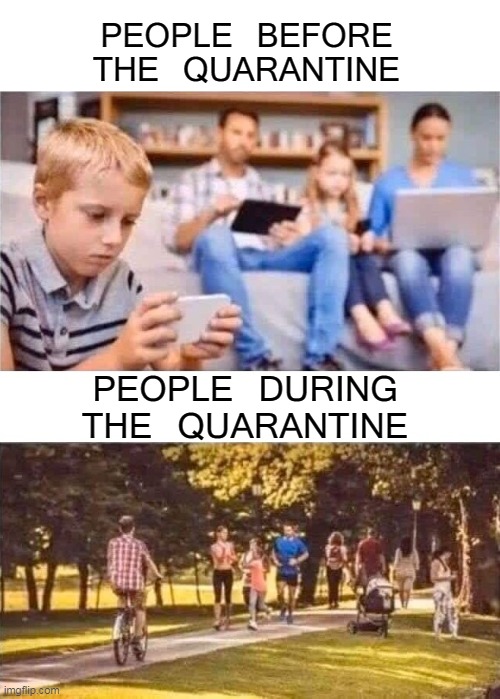
You don't have to have to interact or to get within close proximity with other people to go out; you can still practice social distancing while outside.
Of course, leave your home with great care and caution; in many countries around the world, a strict lockdown has been enforced.
7. Exercise
It seems to go without saying in most cases: you need physical activity.
Personally, I have been following Emile Slaneff's "no-equipment" workout series on YouTube.
Working out at home can present issues if you live in a small, confined space, or if you have a situation where movement should be limited for roomates. In those cases, you can, at the bare minimum, practice some forms of stretching/yoga.
At the very least, try to get some exercise in.
Closing Thoughts
While many of the aforementioned suggestions may not apply directly to many in more dire situations, it goes without saying that we should not underestimate the severity of the COVID-19 outbreak.
Let me repeat: this is not a laughing matter; many people will die. Staying at home to self-isolate should comprise the least of your worries when many people may not have enough food to last the duration of the pandemic.
Don't Overanalyze

In the wake of constant streams of news, one of the biggest questions asked on Google focuses on how to discern fake from real news:
However, it gets easy to get wrapped up in a storm of negativity on Twitter and online.
It's not a competition

Finding essentials, as difficult as it has become around the world, doesn't afford us a chance to "show off" our wealth. We need to consider the unfortunate situations of those individuals less fortunate than ourselves.
Make Fun with Caution
Making light of the situation can afford us some relief, but we need to remain cognisant of those who in real struggles.
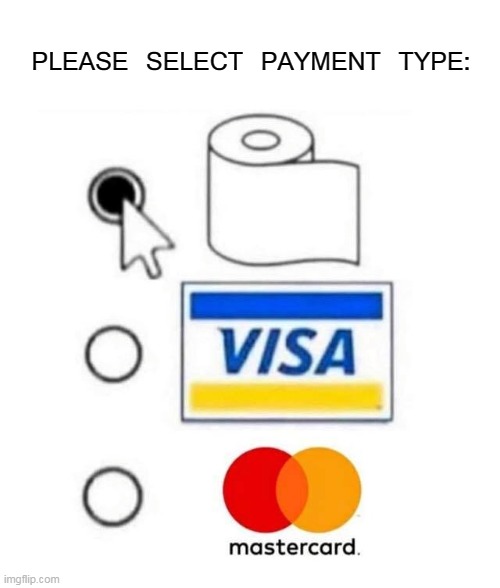
Enjoy Your Spare Time
Time is our most valuable resource
Todd Valentine, a men's dating coach, puts it succintly in his video addressed to men feeling anxious in times of forced self-isolation.
Stay Positive
Understandably, many people will still let the negativity of the internet consume them. Some will get depressed, not knowing what do to with their time. Or maybe they won't see a positive, proactive way forwards in their lives. For this reason, remaining positive should figure in our top priorities; doing so will permit us to come out stronger and even more developed (personally) than when we entered quarantine.
I'll finish with a mention to a song Worms by The Japanese House:
I'm so much better
I don't have to be on my own
There's so much pressure not to be alone
Sharing your house, sharing your life
Sharing your home
There's so much pressure not to be alone